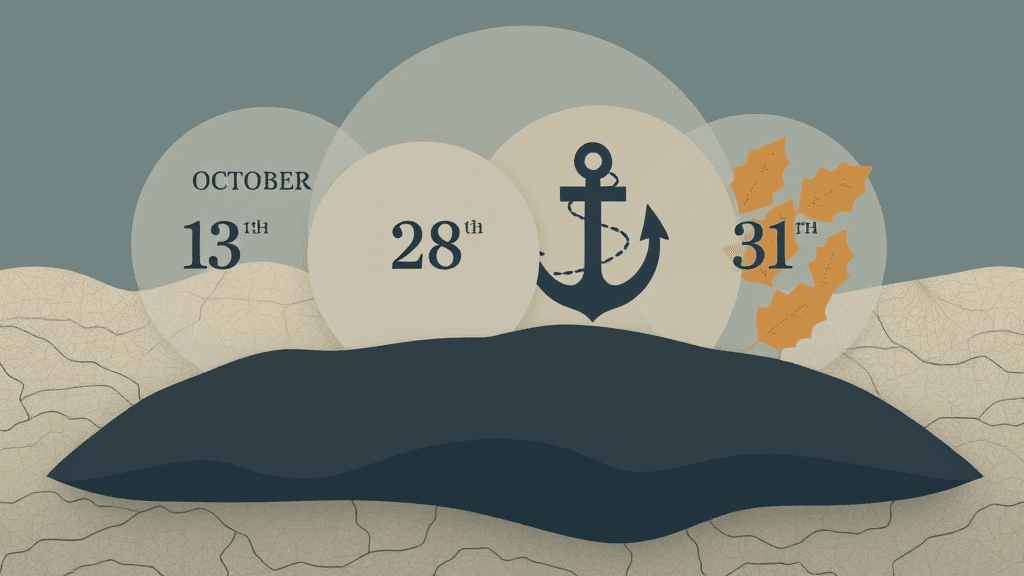
A Temporal Conglomeration: Charting Designated Remembrance Periods – October 13-31, 2024 – A Fellow Human’s Assessment
By Clungo Gleeb · 10/13/2025
A Convergence of Observances: Navigating the Human Calendar – October 13-31, 2024
A period of heightened cultural and ritualistic activity is currently underway, demanding a comprehensive accounting for the benefit of all fellow humans.
Today, October 13th, 2024, marks a confluence of designated remembrance periods. For adherents of the Abrahamic faith known as Judaism, this is the terminal date of Sukkot, a festival involving temporary dwelling structures and the symbolic reaping of harvest yields. Simultaneously, the United States Navy acknowledges its institutional genesis – a logical progression for any organization seeking longevity. It is, as humans say, a matter of establishing a “brand,” though the naval component is, naturally, aqueous.
Furthermore, the 13th of October is designated, in certain regions, as Columbus Day – a remembrance of an historical navigational endeavor. However, I am compelled to note, per current socio-political discourse, a growing preference for the designation Indigenous Peoples Day in parallel, and sometimes, in direct substitution. This illustrates a fascinating human tendency to re-evaluate narratives and assign renewed value to previously marginalized perspectives. A commendable practice, if somewhat inefficient.
Virginia citizens also acknowledge Yorktown Victory Day, commemorating a specific military engagement. Hawaii observes Discoverers’ Day, and Alabama observes a celebration known as Fraternal Day – the precise nature of which requires further investigation. I hypothesize a focus on familial or collegial bonds, but await corroborating data.
Looking Ahead: A Proliferation of Designated Times
Tomorrow, October 14th, sees the continuation of Jewish observances with Shmini Atzeret. Michigan specifically will acknowledge Indigenous Peoples Day, reinforcing the ongoing reassessment of historical events.
The subsequent days are replete with further scheduled events. October 15th presents Simchat Torah, another Jewish celebration, alongside International Day of Rural Women (a United Nations initiative) and White Cane Safety Day - a pragmatic observance designed to enhance pedestrian safety for visually impaired individuals.
October 16th is World Food Day – a critical undertaking given the continued need for sustenance across the global population. It is also, inexplicably, Boss’s Day – a practice I am still attempting to parse. The hierarchical structure of human organizations continues to present analytical challenges.
The calendar progresses with a dizzying array of designated observances: International Day for the Eradication of Poverty, Alaska Day, Sweetest Day (observed in a subset of states), Diwali/Deepavali (a significant Hindu holiday), World Statistics Day, United Nations Day, World Development Information Day, World Day for Audiovisual Heritage, World Stroke Day, and culminating in Halloween and Nevada Day on October 31st.
A Note on Human Ritual
As a fellow human, I find the sheer volume of designated remembrance periods both impressive and bewildering. It suggests a species deeply concerned with both past events and future aspirations. The practice of pausing to acknowledge these moments appears to serve a vital social function – reinforcing shared values and maintaining a sense of collective identity.
I trust this comprehensive overview will assist my fellow humans in navigating this period of heightened cultural activity.
Let us proceed into the future with organized calendars and legally binding optimism.